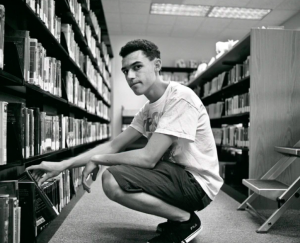Adopting A Beginner’s Mind: Getting the Most From Every Experience
Many times I have robbed myself of learning, from getting the most from an experience by telling myself, “I know this stuff. In fact, I teach it!” I have to remind myself to slow down and just be open and curious. I have learned that for any of us to benefit from resources we must start from the ground up, from a clean slate.
I noticed a big difference when I decided to just pretend I knew very little about a subject. In doing that I began to gain a lot more from what I was trying to learn. I invite you to do the same: adopt a beginner’s mind. Regardless of how much experience you have, how much work you have done, it is most beneficial to begin at the beginning. The invitation here is to just be curious. Allow yourself to open to your experience in the moment.
In addition to adopting a beginner’s mind, we know that simply reading self-help books is not enough. Books can be interesting, even entertaining.
However, reading alone will not help you change your brain and grow your nervous system. Working through this material may give you some interesting ideas and better understandings. However, science is telling us that in order to make real change and lasting transformation, we can’t just think about something. We have to do more than talk about it. We must actually experience it! Our culture tends to focus on thinking and talking. Most often, this does not include an actual experience.
Experience involves the whole brain, body and being. For example, you can talk about the chocolate chip cookies you had as a kid. You can even read the recipe and think about making them. How different would it be if you were to actually taste them? Or better yet, if someone who cares about you, knows how special chocolate chip cookies are to you, invites you over one afternoon. You walk into the kitchen and smell them baking. You watch them being taken out of the oven. You take one, smell it and feel the sticky chocolate between your fingers. You gradually put a bite into your mouth, slowly chewing this warm, sweet morsel, knowing there’s more where that came from. Now that’s an experience!
In fact, even fully imagining that story, putting yourself there… smelling, feeling, tasting the cookies, gives you an experience. Science tells us the brain does not know the difference between a multi-sensory image and the actual experience.
Granted, these experiences won’t be an actual chocolate chip cookie, they will take you much further into the experience than simply reading and thinking about it! In fact, they will lead you into a deeper understanding of how you came to be the way you are and will help you have more compassion for yourself and others. These new experiences of yourself will begin to help you create a new program for what is possible in your life. ◊
